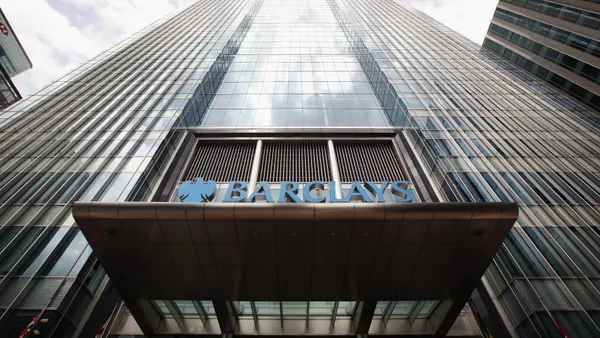Dive Brief:
- The Federal Deposit Insurance Corp. (FDIC) has approved Varo’s application to provide deposit insurance, the challenger bank said Monday.
- The approval does not yet enable Varo to provide insured deposits; the challenger bank will still partner with The Bancorp Bank until it is approved by the Office of the Comptroller of the Currency (OCC) for a national banking charter, a milestone Varo management expects to hit by June, according to The Wall Street Journal.
- Before obtaining the charter, Varo must pass a pre-opening exam from the OCC, the regulator from which it received preliminary approval in 2018. Varo said it also planned to file a bank holding company application Monday with the Federal Reserve.
Dive Insight:
Varo’s journey to FDIC approval hasn’t been direct. The company withdrew its first FDIC application in 2018 after the agency asked the bank to improve its operations and fill crucial positions in senior management. Varo refiled its application in July.
"We didn't really understand that with the FDIC you have to have everything very buttoned down," Varo CEO Colin Walsh told American Banker. "They were asking questions like, who's your chief financial officer going to be? What's your core banking platform? We just were just too early in our process; we hadn’t made some of those decisions yet."
The FDIC also asked about Varo’s financial plan and stress-test scenarios, Walsh said, adding that the approval process has cost the company about $100 million.
But Walsh told Banking Dive in October Varo has been "very transparent right from the beginning" about its ambition to become a national bank.
A national banking charter would allow Varo to make loans in all 50 states — until now, it has relied on state lending licenses — and offer a larger suite of consumer banking products, including direct deposit accounts, credit cards and robo-advising, Walsh said.
"We'll be able to do things like joint accounts, wire transfers and money market accounts — things that a fintech really can't do," he told Banking Dive.
The charter would also let Varo more freely view data about customer accounts, now held by The Bancorp Bank, and reduce expenses related to that partnership.
"You can lower your costs substantially because we're building our own technology platform," Walsh said. Varo will begin converting accounts to its own platform, a Temenos 24 system, once it opens as a bank.
Varo’s transformation could diminish the role for community banks that provide banking services to fintechs, industry analysts told The Wall Street Journal. But Walsh praised The Bancorp Bank for its support. "We would not be where we are without that relationship and being able to bring product into the market," he told American Banker.
Fintechs’ ambitions to obtain national charters have met with resistance from the banking establishment. Both the Conference of State Bank Supervisors and New York’s Department of Financial Services have sued to block the OCC’s fintech charter. A federal judge rejected the CSBS’s suit because no fintech firm has yet applied with the OCC. However, a separate federal court let the New York regulator’s suit proceed. Varo wouldn’t be affected by legal action here because it applied for a full-service bank charter.
Other fintechs, such as Rakuten and Square, have pending applications to establish industrial loan companies, which aren’t regulated by federal banking agencies.













